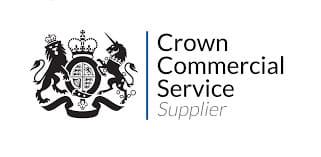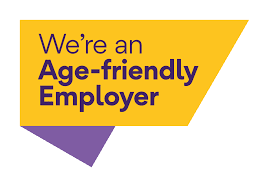This is Open Banking
On 13th January 2018, Open Banking was enforced by the U.K government on the nine major UK banks (Barclays, Lloyds, Santander, Danske, HSBC, RBS, Bank of Ireland, Nationwide and AIBG). Essentially, the ruling requires banks to allow the sharing of their data (mostly the finance/deposited earnings of their customers) with Third Party companies, very often start-ups. However, it does not require the bank’s customers to comply with it and force them to share their data, this is the choice of the customer, and the customer only. The main advantage of open banking is that it would allow third party companies to inform the bank’s customers of better deals that might be available. This would not only mean orientating the customer to the best bank for him according to his individual needs, but also on deals like mortgages
Other start-ups such as Funding Options helps SMEs to find the best funding options available to them in their current financial situation. Some have compared the new law requiring share data with their customers similar to the sharing of data by Google through its maps application which eventually led to the birth of Uber, underlining the importance that this new legislation might have on the way we utilize banking.
Evidence of this can be found in the continuing emergence of several party applications that make use of this newly released data. If the legislation relating to open banking, PSD2, was enacted in January 2018, the Open Banking revolution is still giving birth to many more Third-Party companies that are benefitting from this new opening. As recently as the 18th June, Token, a new open-banking platform raised $ 16.5 M in funding from several prominent banks, evidence of the confidence these banks have in the growth of the open-data industry.[1] The Chinese and Singaporean government have both decided to invest 35 M£ into the three year old London based fintech TrueLayer which sells open banking software.[2] Token, another open-banking app, has also received $ 35 M in funding from various sources, including the venture branch of BNP Paribas.[3] Established blue-chip companies such as PayPal have also decided to invest in open-banking as is evidenced by their association with the (yet another) open-banking app Tink which had already received earlier in the year around $ 40M in investments.[4] Perhaps the most impressive is athat all these events have happened in the last couple of weeks. Further testifying the supersonic expansion and growth of the sector and its potential importance in the future of banking.
If the outlook for this burgeoning industry seems promising, Open-Banking is still a relatively obscure concept for most of the public. A survey conducted by Splendid Unlimited established that less than 1 person in 4 (22%) had heard of Open-Banking.[5] The public’s lack of awareness and familiarity with this novel concept means that it is still relatively fragile. As explained by Nicky Morgan, chair of the treasury committee, a small data breach would be sufficient to fatally damage the growing industry:
“Having rightly been told to never hand over personal banking data to third parties consumers are extremely reluctant to hand over very sensitive personal data, such as their own spending habits, to third parties, many of which will be relatively new start-ups that don’t have a track record in handling data of that kind. Let me at this point offer a warning, it may only take one data breach of financial records from an open banking start up for the entire retail Open Banking proposition to be damaged, perhaps fatally.”[6]
Another of the inconveniences has been pointed out by Helen Saxon, chief money analyst at MoneySavingExpert.com as she explains that these new Third-Party apps are not necessarily impartial:
“They may find you an energy deal that saves you money, but there’s no guarantee they’ve searched the whole of the energy market to find the cheapest tariff. They may just offer deals from companies who pay them for new business.”[7]
Brexit might also have an effect on the future of Open-Banking, or at least in the U.K it could. As the Open-banking regulations are a consequence of PSD2, a law promulgated by the EU, after Brexit parliament will have to decide itself whether it wishes to continue along the path of open-Banking.[8]
Therefore, if the perspective of open banking opens the door to a number of innovations in our banking habits, perhaps even in our living habits, there is still a long way to go before it has established a secure footing within society. But in spite of all the obstacles that lie in its path, the potential that it could unlock, and the enthusiasm that exist for it as testified by the large investments made in the sector, seem to indicate that the future of banking will inevitably integrate open banking.
Third Party companies quoted in this article:
[1] Coindesk Article[2] Tencent, Temasek invest $ 35 in UK open-banking start-up[3] Token[4] Paypal ; Tinker Investment[5]Splendid Report[6] City AM article[7] Guardian article on Open Banking[8]Open-Banking: Brexit effects

Contact us
Call us on 07930 356305 or email HQ@russam.co.uk








